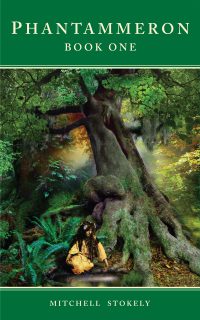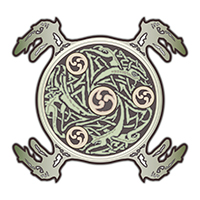The Battle of the Trees
I have been in a multitude of shapes,
Before I assumed a consistent form.
I have been a sword, narrow, variegated,
I will believe when it is apparent.
I have been a tear in the air,
I have been the dullest of stars.
I have been a word among letters,
I have been a book in the origin.
The inspiration for my fantasy novel, The Phantammeron, has come from this type of Druidic poetry. Ancient Celtic poems in England and Ireland hold a treasure trove of pre-Christian myth and meaning that reflect back on who our ancestors were for thousands of years. Battle of the Trees is one such poem.
Many of the most ancient poems that survive come from a bard named Taliesen and date from a period after the Romans left Britain and the island was overrun with Anglo-Saxon invaders. This poet is more than likely a collection of people, much like Shakespeare has been shown to be many writers, as his plays have been refined since his death. We are often scared to admit that many of our greatest artists and their work are but myths society recreates over and over
But as a whole these poems represent relics of very cryptic and powerful laments by what were the last Druids on earth.
The Battle of the Trees is one of my favorite from this period. Its a very difficult poem to understand and was intentionally written, I believe, as druidic verse in a very compressed way in order to distribute the primitive but powerful wisdom of the druids to future listeners beyond just the Welsh prince’s it originally entertained.
In the poem many see some type of metaphor for some battle of Gods and Titans. But I see something very different. Talliesen is in fact superseding the idea of war, and even of Christian salvation, by saying the trees were but the first men on earth created by the Creator but to teach men that war shall not end nor solve their suffering. And the Druid, not Christ, holds the key to beginning and end of all things. He describes himself as in all things, some force or element in water, in earth, in rain that exist for all time and that shall always exist. And it is very much a Hindu or East Asian belief to say that when we die we can come back as anything in Nature.
The poet is saying we can all be druids and be as the Creator but a piece of all that is. And as a trees he says the Lord made them at the beginning with the promise of being men, something more, so that in the early age of the world, they but came from the seas (the Celtic underworld) but to first fight, then making voices together in harmony they were suddenly at peace and never warred again.
Talliesen takes us, thus, on this philosophical trip to his central idea that there is time and the foibles of men at war for blood, but behind it all is the magician or Druid who has seen it all before, and that the eternal essence of grass and rock which have spirit live on, and that outside the limited Christian view of the flood, then Christ, then the Revelation, there has been and always will be Nature and the timeless Celtic spirit which lives eternally in all things. We too shall be grass and rock again until we become Druids yet again.
I love this mysterious poem which feels like some Hindu religious theme Ive read before. It shows us our ancestors had a very different spiritual concept of Nature and Time, one that invites us all into the mystery if it, rather than the current view that we are but flesh and material, lonesome outsiders to Nature’s essence, the sad reality that Modern Americans have adopted today.
– the Author
Created Jul 14, 2018, 11:01 AM



